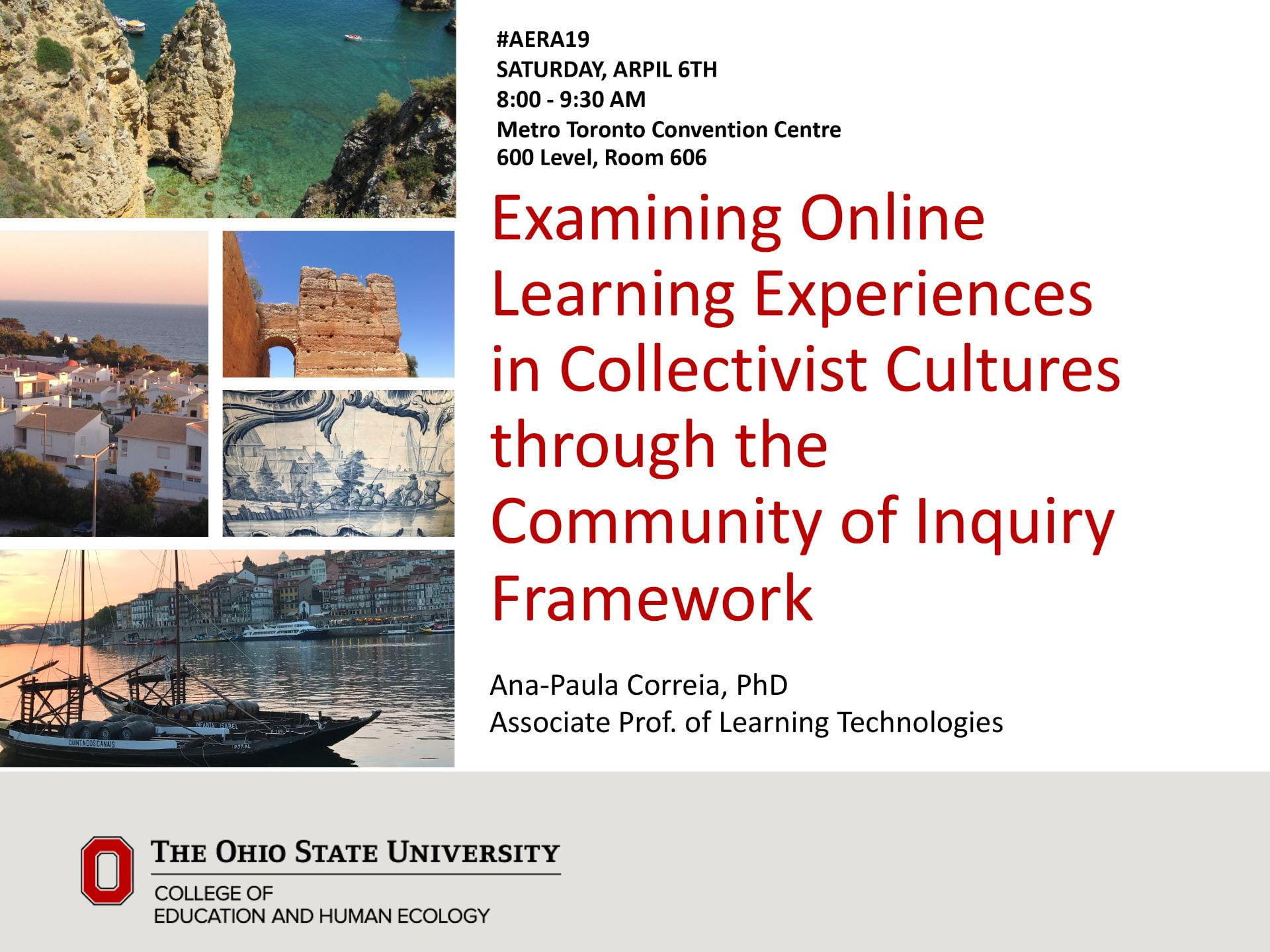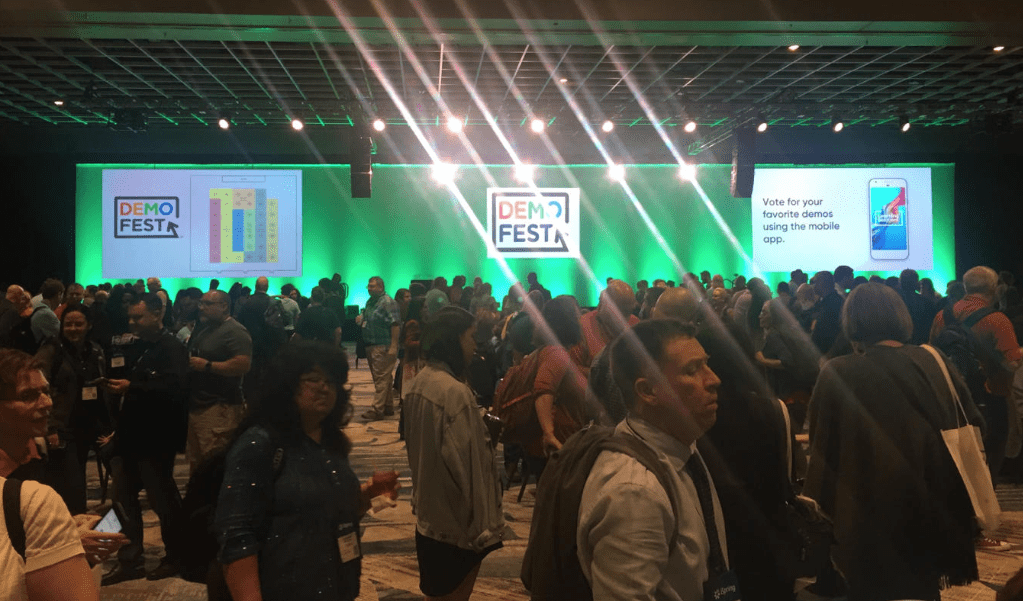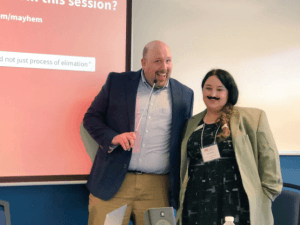By Mimi Adjei (adjei.39@buckeyemail.osu.edu)
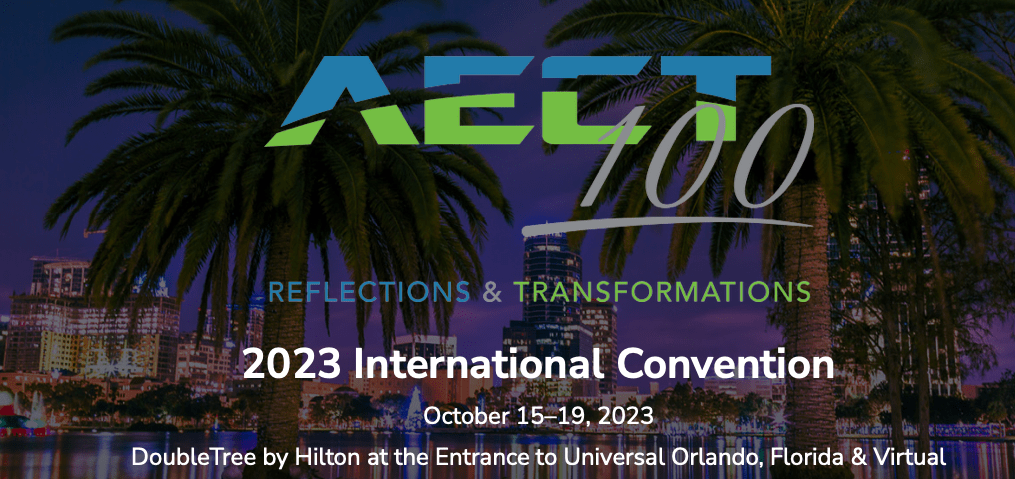
#AECT2023
All roads led to Orlando, Florida, this October as the LED research group had the opportunity to present its groundbreaking research and celebrate the accomplishments of its members at the Association for Educational Communications and Technology (AECT) 2023 International Convention. The 2023 convention marked 100 years for the AECT as an organization.
Sean Hickey, Dr. Ana-Paula Correia, Katherine Fergus, and the Center on Education and Training for Employment (CETE) received the 2023 AECT Outstanding Book Chapter Award from the Division of Distance Learning (DDL) for their book chapter, The DACUM Virtual Institute: A Case Study in Designing for Adult Learners*. This award recognizes a book chapter in a print or digital book published in English with a copyright date within the last three years (2020-2023) that describes important theoretical or practical aspects of distance education that can help others involved in distance education or those researching an important aspect of distance education.

Fan Xu (middle) received the DDL award on behalf of Sean Hickey, Dr. Ana-Paula Correia, and Kate Fergus.
Jiarui Xie, Mimi Adjei, and Dr. Ana-Paula Correia also presented their poster at the AECT 2023 International Convention on their study titled Teacher Interaction in Asynchronous Online Discussions: A Comparison of Discussion Board Replies and Grade Page Comments as part of the DDL’s program.
Abstract: This study compared the effects of two instructor participation approaches: replying to student posts on discussion boards and commenting on student posts on grade pages. The study examined the impact on both the quantity of student participation and the quality of student posts. The findings revealed that when the instructor replied on discussion boards, there was significantly more interaction between students than when the instructor commented on the grade pages. However, the number of student posts had no significant difference between the two approaches. Notably, both approaches contributed to a gradual improvement in the quality of student posts over time.

Jiarui Xie (left) & Mimi Adjei at their poster presentation during the AECT 2023 convention.
Dr. Chenxi Liu, Yixi Wang, Dr. Marvin Evans, and Dr. Ana-Paula Correia also contributed to the Division Emerging Learning Technologies program with their study, Uncovering the Drivers of Mobile Learning Acceptance: A Meta-Analysis of Critical Influencing Factors. Dr. Evans led the presentation on Mobile Learning Acceptance f on behalf of the rest of the team.
Abstract: This meta-analysis employs the Technology Acceptance Model to examine the factors influencing mobile learning acceptance and moderation effects of education level and region. Using a one-stage meta-analysis structural equation model, we developed an integrating model revealing the significant impacts of subjective norm, self-efficacy, enjoyment, and system quality on mobile learning acceptance. Our findings show that these impacts are weaker in higher education compared to non-higher education and stronger in Asia-Pacific compared to non-Asia-Pacific regions.
Dr. Evans also successfully led a practice session for the Design and Development program on Creating Online Learning With Vygotsky’s Zone of Proximal Development Using Articulate 360.

LED members who were at the AECT convention. Left to right: Dr. Fan Xu, Mimi Adjei, Jiarui Xie, and Dr. Marvin Evans.
The LED research group is excited and looks forward to presenting more of its research at the AECT 2024 International Convention in Kansas City, Missouri. Hope to see you there!
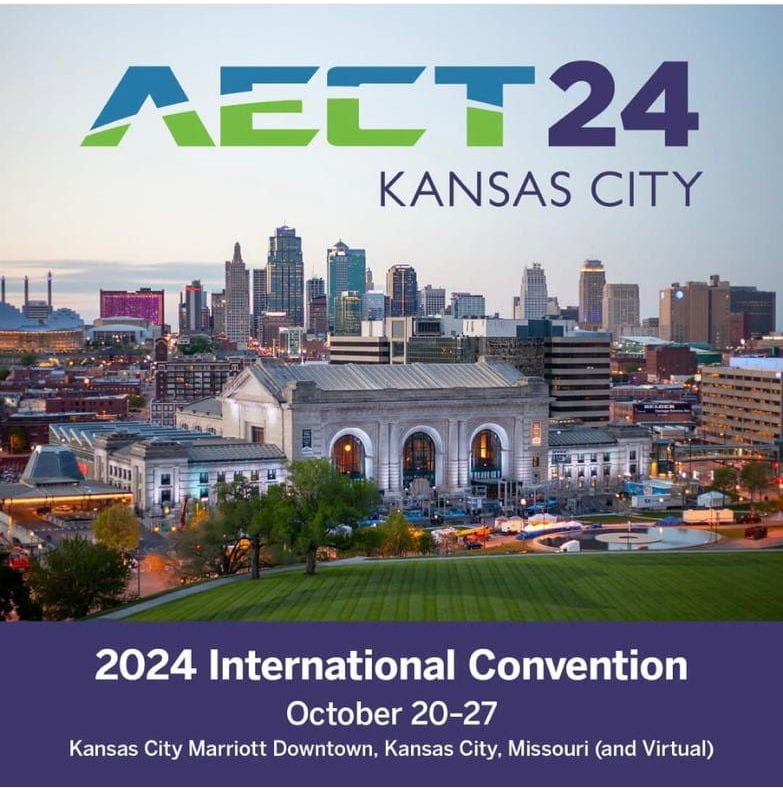
*Cite as: Hickey, S., Correia, A.-P., & Fergus, K. (2022). The DACUM Virtual Institute: A Case Study in Designing for Adult Learners. In P. Sullivan, B. Sullivan, & J. Lantz (Eds.), Cases on innovative and successful uses of digital resources for online learning (pp. 262-284). IGI Global.











